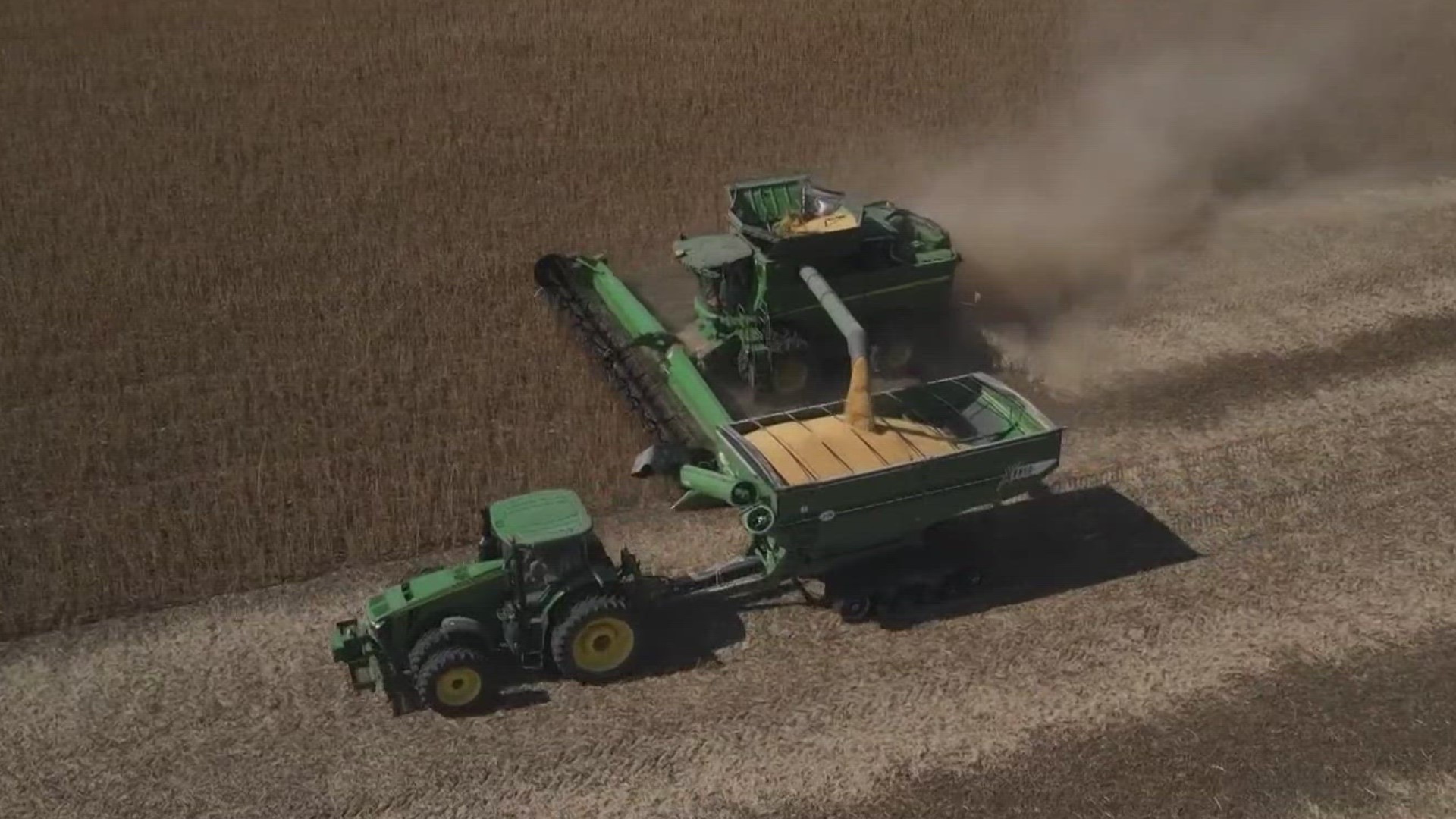JESUP, Iowa — An Iowa farmer is doing something we haven’t seen before: preparing to use special seeds and satellites to grow more crops while also protecting his farmland.
It’s a game-changing technology that could shape how farming works in the future.
“Our farm's about legacy,” said Ben Riensche, owner of Blue Diamond Farming Company. “I'd like to take good care of our soils. I'd like to leave things intact better than I found them for the next generation.”
Riensche is a sixth-generation farmer; his ancestors emigrated to Iowa from Germany in the 19th century.
He said his farm and family have weathered lots of change through technology.
“I think they'd be proud, because of the technology, because of the kind of equipment we have, it's possible to manage more, and they'd be glad that we stayed active and challenged and busy, that we look for opportunities to grow and be a leader in what we do,” Riensche said.
Riensche said he and his fellow farmers are constantly on the cusp of industrial changes and looking for ways to work with other organizations.
At an agriculture conference, Riensche met leaders from InnerPlant, a California-based agricultural tech company.
“What I’m excited about with agriculture is that we’re at this cusp of change,” said InnerPlant CEO Shely Aronov.
InnerPlant is developing lab-engineered seeds that could help farmers in the future.
“It is essentially accelerating natural processes, because we have better technology, kind of like software and hardware, just the plants are the hardware in this case,” Aronov said.
The seeds send a special signal to farmers when their crops are in trouble, like when they are under attack by stress, disease and bugs.
It works by altering the seed DNA through genetic coding.
“That line of code then tells them, when you’re reacting to pressure or stress start producing a new protein that then creates an optical signal,” Aronov said.
That visible signal? The plant leaves will glow in the dark.
“We can see that optical signal anywhere from satellites to drones to tractors in the field,” Aronov said.
This would allow farmers to pinpoint where to treat bugs and fungi instead of spraying an entire field with pesticides.
“They can increase their yields by eliminating all these stresses early and they can also eliminate the unnecessary use of chemistry," Aronov said. "You don’t want to spray everywhere, you just want to spray where you need it."
It’s technology Riensche said excites him.
“You don't have to forego using herbicide technology, which when you responsibly use is very effective,” Riensche said. “But what if we could use just a fraction of the amount of pesticide that we presently use? That's pretty exciting to me.”
He said he was eager to invite InnerPlant leaders to his farm after meeting at the conference.
“I wanted them to see how we grow a crop, and then with their own clean slate, decide what they could do with their technology to make it a better production system for us,” Riensche said.
Success here could lead the way for a greener and more sustainable future.
“How do you maximize the use of the land that’s already used and arable for agriculture but without essentially making it unusable for the future?” Aronov said. “So, it’s how to increase yields, but how do you make soils more healthy and more resilient so that we can continue to do this for more and more generations.”
Riensche said this is a new generation of farming, where tradition embraces technology to produce and feed more.
“I have a little Iowa pride myself since I'm an Iowa farmer. I think I'd like to see my friends and neighbors lead this industry,” Riensche said. “I'd like to show the rest of the world that we can do things regeneratively, that we can do things beneficially, that we can take good care of our soil and water resources, and that we can feed the most people possible as affordably as possible.”
InnerPlant will have its pilot trials in fields like Riensche’s in the next planting season. The seeds are already USDA-approved.

